The city - sliced, diced and served with a dash of sauce
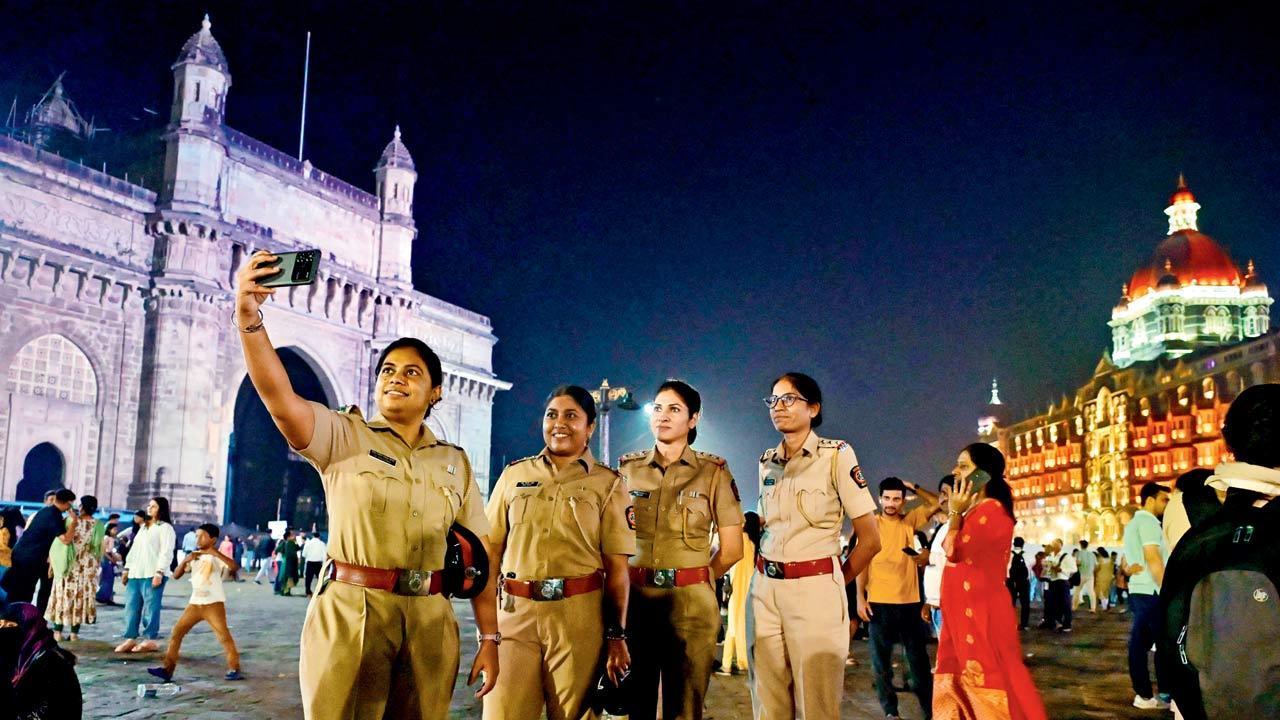
Pic/Shadab Khan
City icons, all
ADVERTISEMENT
Against the backdrop of two of Mumbai’s most famous landmarks, a few women police officers pose for a selfie as revellers flocked to the site to ring in the New Year.
Chasing thieves in the city
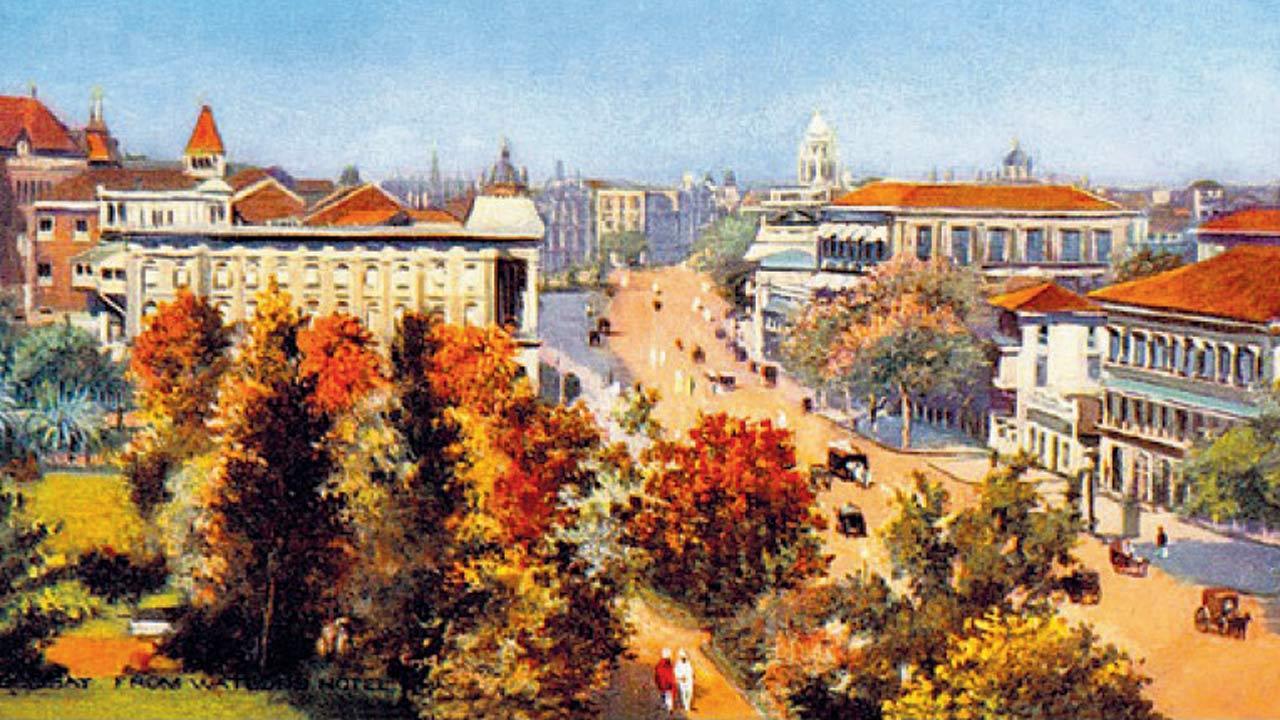 An artist’s impression of a view from a top floor of Watson’s Hotel in its heyday. Pic/Wikimedia Commons
An artist’s impression of a view from a top floor of Watson’s Hotel in its heyday. Pic/Wikimedia Commons
Author Anuradha Kumar’s love affair with vintage Bombay continues. Confirming her upcoming book with this diarist, the author whose previous title, The Kidnapping of Mark Twain was a thrilling fiction on the American writer’s visit to the city, revealed that her new book is tentatively called The Bicycle Thieves of Bombay. It is set in September 1896, a few months after Twain’s visit in January that year. “It’s early days but the impact of the plague is already noticeable and responses to it will soon divide the city, among reformers and orthodox elements,” said Kumar. Her protagonists Henry Baker and Maya Barton return to solve a mystery as a miasma of fear hangs over plague-affected Bombay. “And within the bigger mystery is Maya’s own journey of self-discovery and romance between her and Henry,” the US-based writer added, hoping that the book will evoke the Bombay of that period, with the reader being able to experience the smells, sights and sounds of a city as it grappled with the plague. At the centre, bicycles are being confiscated or stolen while bicyclists are also spotted roaming the city. We can’t wait to see how this plot pedals back to erstwhile Bombay.
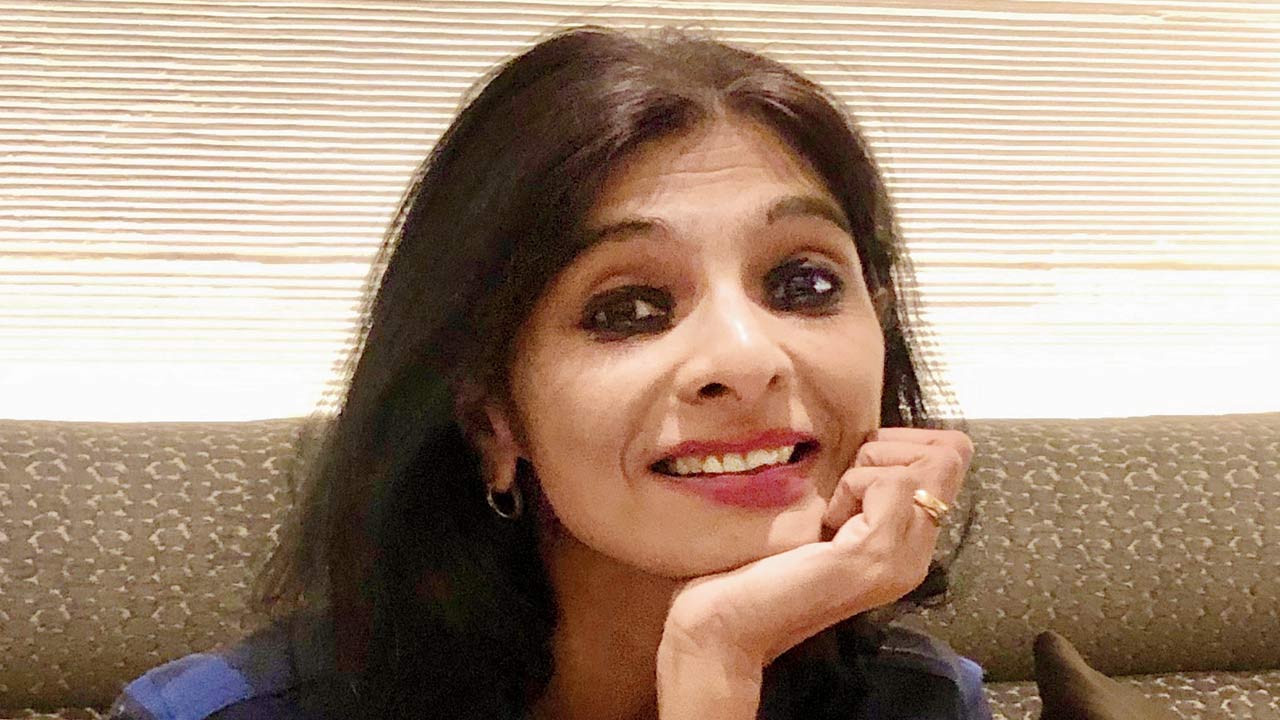 Anuradha Kumar
Anuradha Kumar
A century of Art Deco
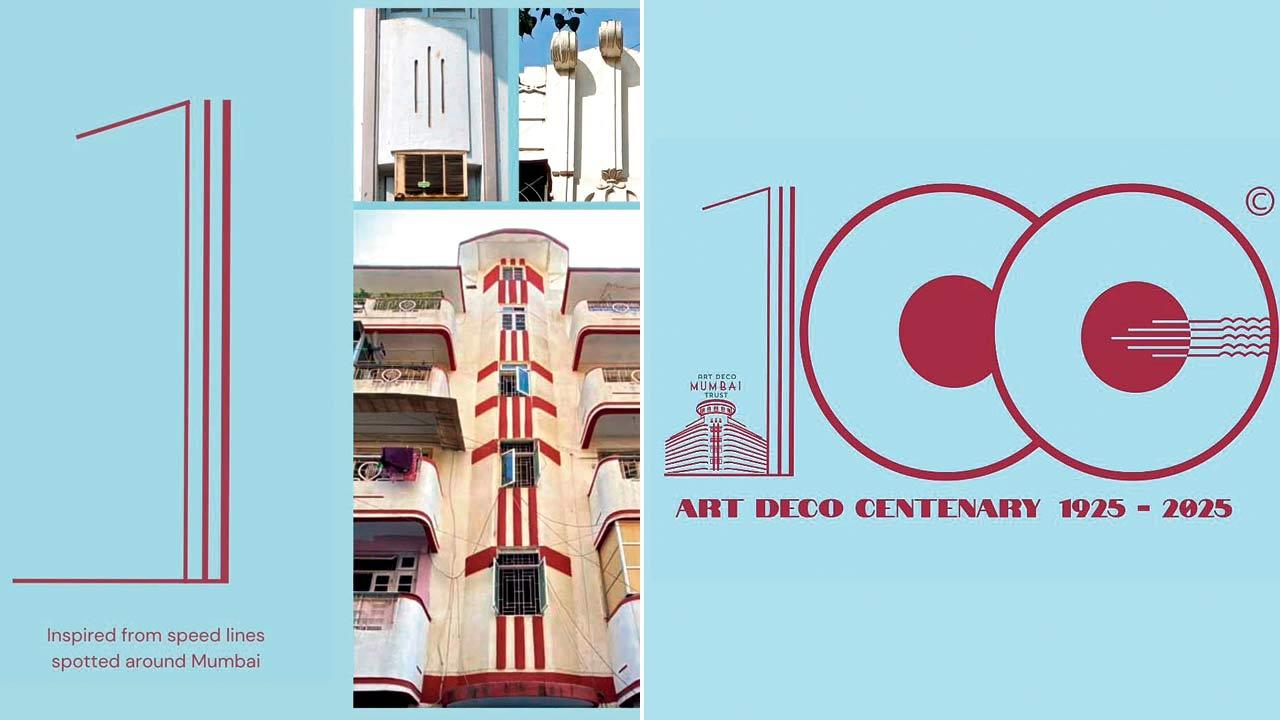 Speed lines on the logo alongside the Dominic building in Girgaon; (right) the new logo. Pics Courtesy/Instagram
Speed lines on the logo alongside the Dominic building in Girgaon; (right) the new logo. Pics Courtesy/Instagram
The first day of the New Year is a good time for a new turn. Art Deco Mumbai shared a newly designed logo marking 2025 as the centennial year for the Art Deco Movement. The style originated in France, and was sparked into popularity at the 1925 Paris Exposition Internationale des Arts Décoratifs et Industriels Modernes.
“A centenary in any timeline is an important milestone. Given the city’s deep involvement with Art Deco, not just through architectural style but on many levels, we thought we should celebrate it and show people how the planned neighbourhoods where they still live in, look. It is often good to highlight what you have, before you jump onto the new thing,” shared founder trustee, Atul Kumar. Designed by Vandita Shukla, with inputs from the team, the logo has a very Mumbai touch. “We wanted to infuse it with elements that make it relevant to people in India. So, we used several elements spotted around Mumbai Deco buildings. The speed lines and circles are classic Art Deco motifs, and particularly prevalent in the city,” he told this diarist.
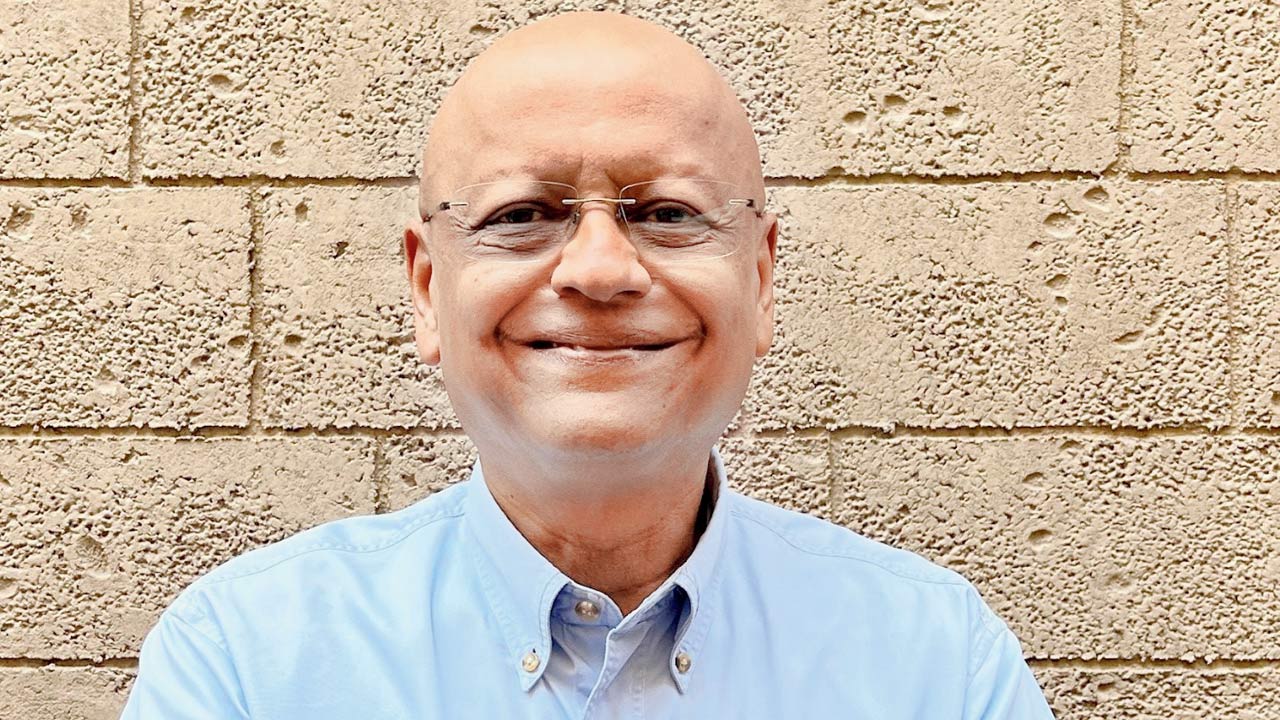 Atul Kumar
Atul Kumar
Return of the handwritten letter
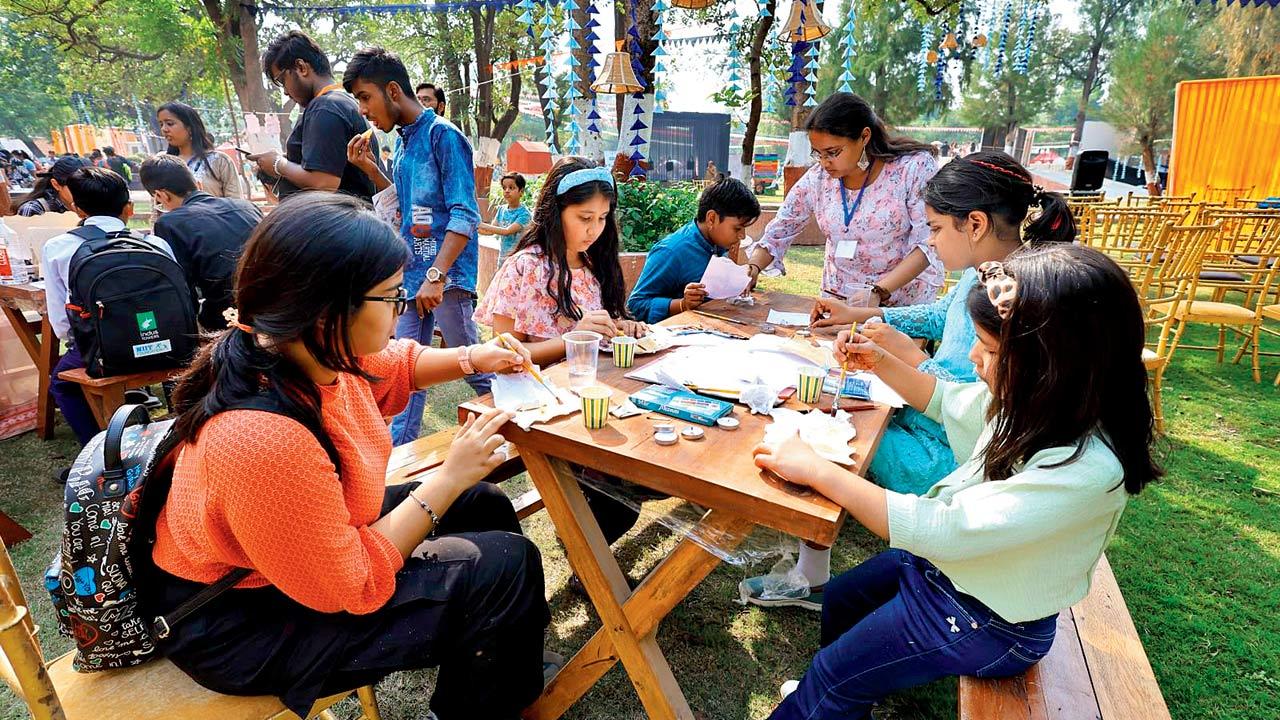 A previous edition of the carnival
A previous edition of the carnival
While we might be in the digital era, certain old traditions never lose their charm. Daakroom, a cultural enterprise dedicated to the revival of handwritten letters is hosting a Letter Writing Carnival at the World Trade Centre in Cuffe Parade on January 18. “This is the sixth edition of our Carnival and the first one in Mumbai. We have a pen pal section where kids can write letters to their favourite celebrities, and a vintage letter booth to promote the practice of letter writing. We also have quizzes, calligraphy competitions, and DIY activities among other events,” Shivani Mehta, co-founder, told this diarist. Those interested can log on to @daakroom on Instagram to register for the event.
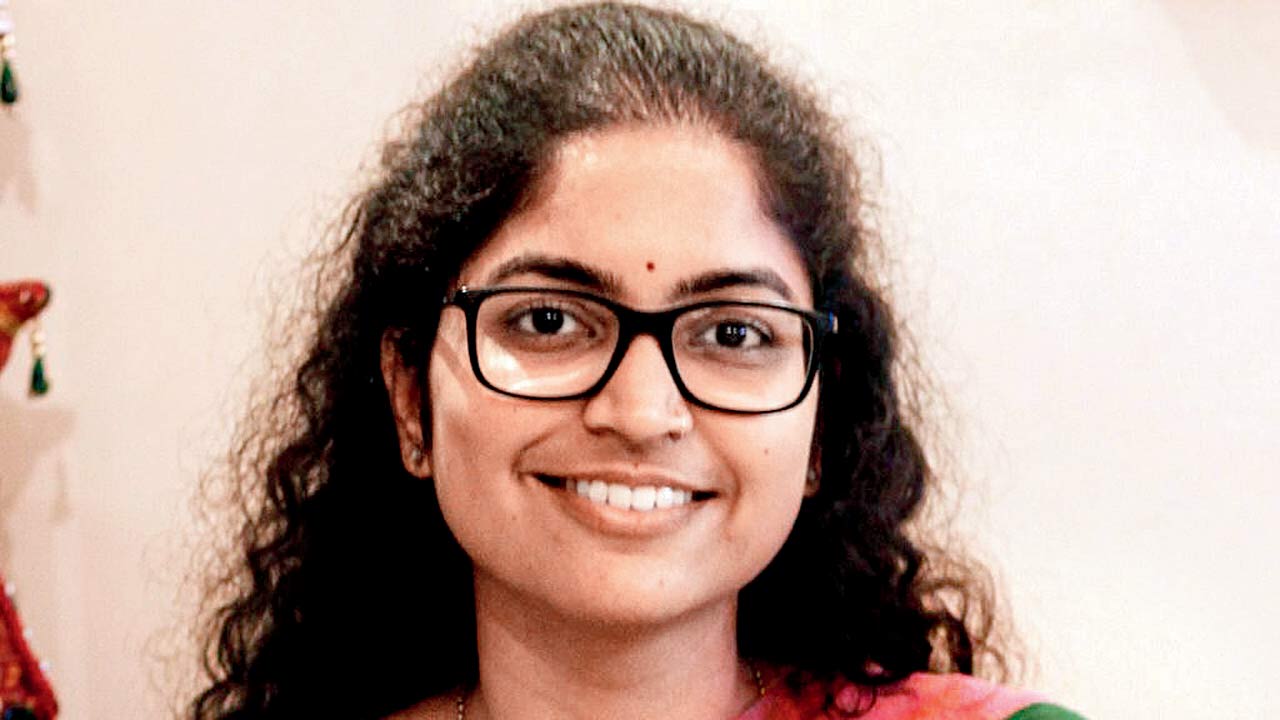 Shivani Mehta
Shivani Mehta
Scripts in words
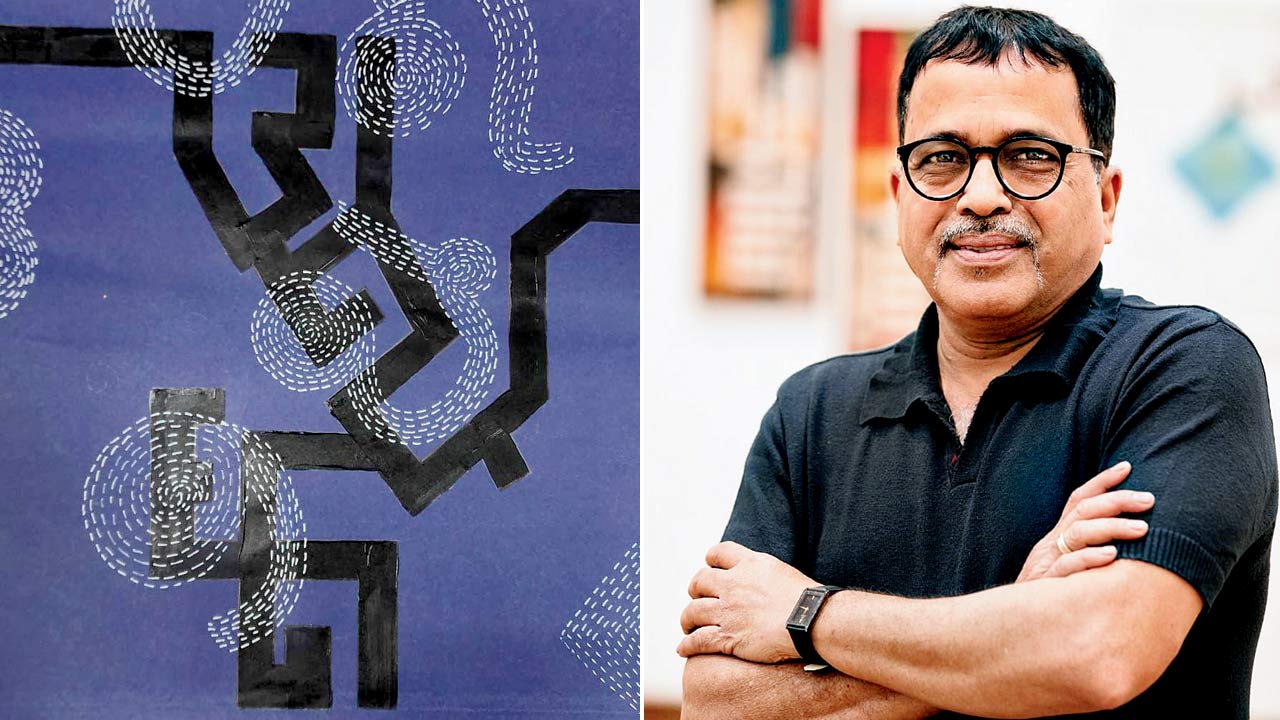 A calligraphy-based artwork that will be part of the exhibition; (right) Achyut Palav
A calligraphy-based artwork that will be part of the exhibition; (right) Achyut Palav
After wrapping up an eventful year that included flying to the USA to paint a Devanagari motif on the Star-Spangled Banner (US National Flag) on July 4, and bagging accolades in South Korea last month, veteran illustrator and calligraphist Achyut Palav (inset) is embracing 2025 with a fresh project. The artist will release his new book, Akshar Bharati — an exploration of nearly 14 Indian scripts in calligraphy format — at an exhibition opening at the Jehangir Art Gallery on January 28. “Through my travels, I realised that people are keen on exploring the lesser-known Indian scripts beyond Devanagari. To that end, I set out to collaborate with nearly 34 artists from Kashmir to Kanyakumari to bring this book to life,” Palav told us. The book will include a mix of ancient and modern Indian scripts including Gurmukhi, Kannada and Urdu. “We hope that the book sparks an interest for our scripts not only in the young minds here in India, but the diverse diaspora spread across the globe,” he added.
 Subscribe today by clicking the link and stay updated with the latest news!" Click here!
Subscribe today by clicking the link and stay updated with the latest news!" Click here!







